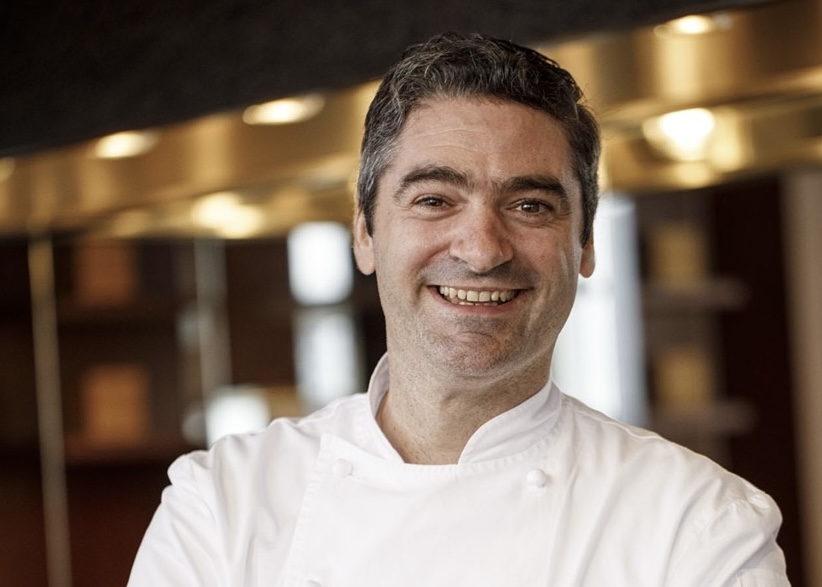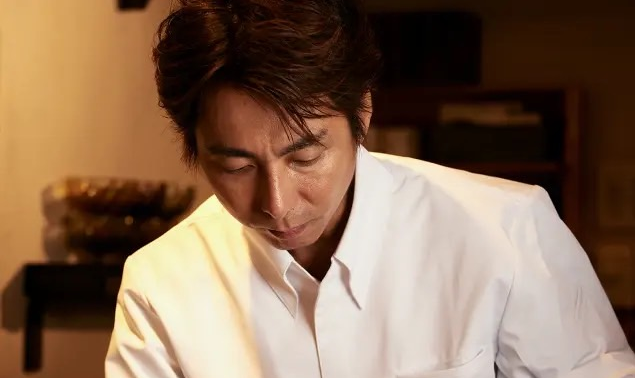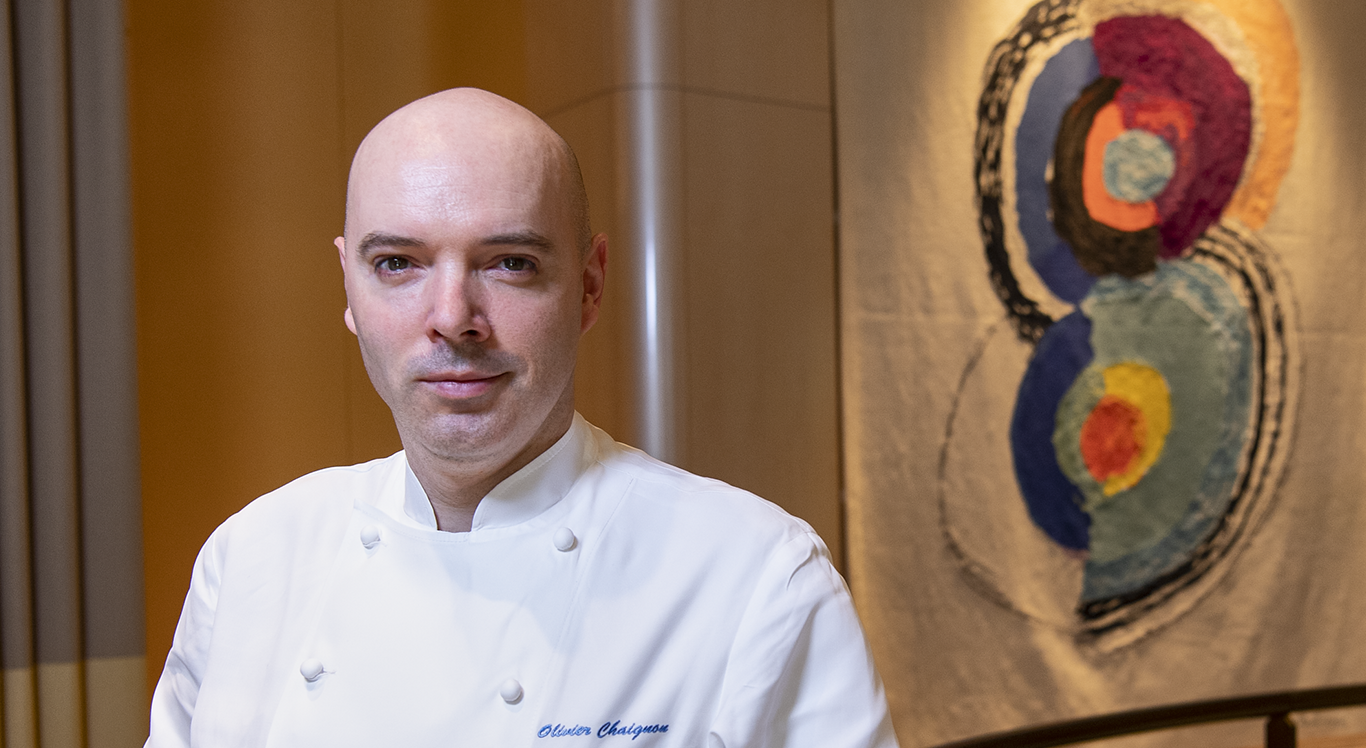
Olivier Chaignon
Executive Chef
L’Osier
“I’m always on the hunt for high-quality ingredients around Japan and the world to incorporate into my culinary creations,” says Olivier Chaignon. “I always encounter something new and interesting when I visit food producers.” When he is not leading the bustling kitchen at L’Osier, a Michelin Three Star restaurant in Ginza, he is often meeting food producers at their farms. In November 2022, he visited Akaito Estates—our farm—in Kashima City, Saga Prefecture.
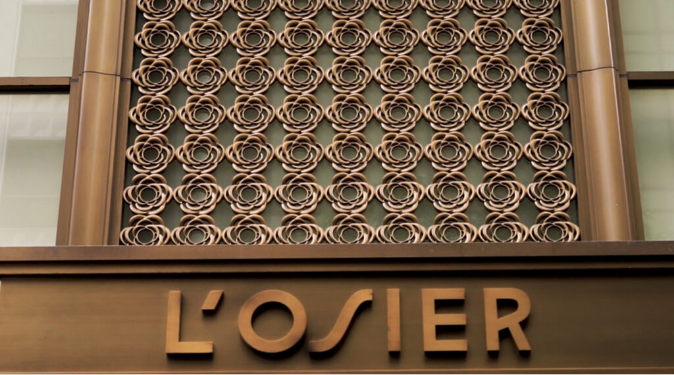
Chef Chaignon places sustainability squarely atop his priority list in his interpretation of French cuisine in Japan and in his management of the renowned L’Osier. As with Shiseido (which runs L’Osier), he promotes Sustainable Development Goals (SDG) in all aspects of the restaurant’s operations.
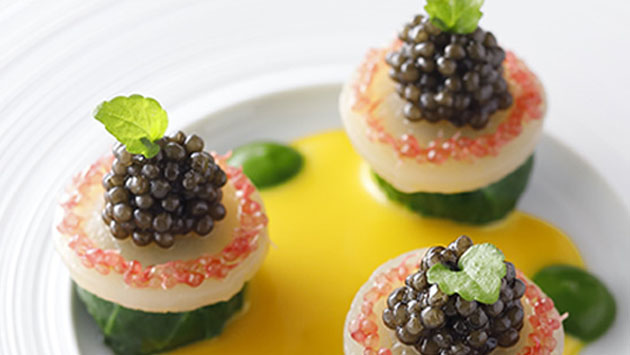
Chef Chaignon’s aspirations for the SDGs
Under Chef Chaignon’s leadership, L’Osier blends fine dining with environmental consciousness: powering the restaurant with renewable energy, using soap made of recycled cooking oil, and procuring ingredients from environmentally friendly farms are several of his many sustainable initiatives. He also supports and encourages Japanese agriculture by producing the restaurant’s ingredients from an organic farming method called ‘Microbiome Farming’, a kind of organic farming that uses natural microbes, such as special lactic acid bacteria and their metabolites, in place of chemical fertilizers and pesticides. Microbiome Farming is in keeping with the SDG mandate of Akaito, which is highly regarded for working with Japanese families in Kyushu who farm sustainably by eschewing chemical fertilizers and pesticides and, instead, use historical Japanese cultivation methods in concert with modern scientific research.
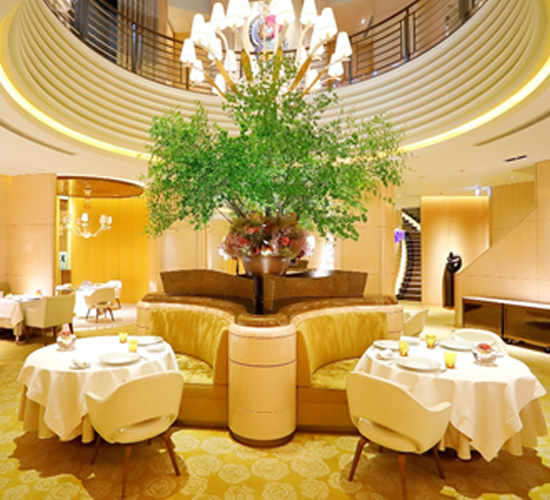
Early Experience with Organic Products
Chef Chaignon travels across Japan to buy fish caught by lines instead of nets, chicken and eggs from eco-friendly poultry farms, and organically grown vegetables. He is a bridge between biodiverse agricultural businesses and the fine dining industry. “When I was growing up in France, fresh organic products were abundant. Irregular shaped and lightly damaged fruits and vegetables were available in the stores, and consumers could choose.” said Chef Chaignon. “The emphasis on nutritious foods grown with environmentally friendly practices is the norm over there. Consumer demand for organically grown products would incentivise farmers to grow more, creating a happy cycle.”
Shortly after becoming Executive Chef at L’Osier in 2013, however, he realised that the organic movement in Japan lacked momentum and was different from that in France. In talking to food producers, he learned that there are numerous barriers to obtaining organic certification and, in some cases, generational differences in thinking prevent more farmers from becoming involved in organic farming. He thinks, for example, that the government should promote organic farming by providing subsidies and incentives to help farmers to transition to organic farming. During meetings with Chef Chaignon, local government officials did not express enthusiasm for such ideas.
Nevertheless, Chef Chaignon remains optimistic about the future of Japanese agriculture. “I hope to stimulate the industry by demanding more high value foods,” he says. L’Osier’s menu highlights his commitment to sustainable gastronomy.
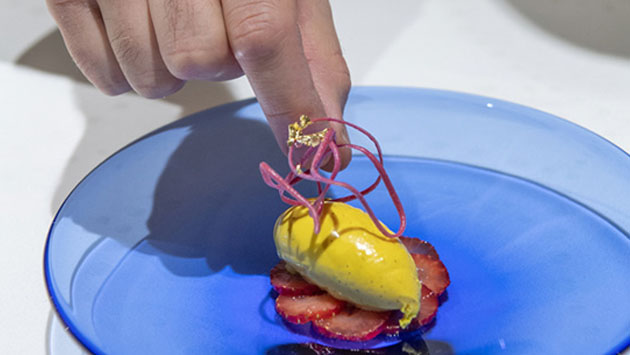
The Akaito Connection
Chef Chaignon was keen to try Akaito Japanese saffron after having been introduced to it. “I didn’t even know about the Japanese saffron industry until I met Akaito,” he says.
“Akaito saffron is exactly what I wish to encounter during my visits to food producers.”
He appreciated Akaito’s values, including the goal to make the Japanese saffron industry sustainable by bringing the highest quality, ethically produced saffron to the world.
Outside Japan, the oversight and management of the saffron industry’s supply chains are opaque. Distribution of adulterated and counterfeit saffron is widespread. Unethical labour practices, including child labour and worker exploitation, are commonplace. In response to this situation, Akaito has taken up the challenge of establishing a supply chain that is transparent from producer to customer, paying fair compensation for the extremely labour-intensive picking of the flowers and the meticulous manual work of processing stigmas to ensure maximum aroma, flavor, and color. Akaito has resurrected and transformed the almost extinct industry of Japanese saffron, and is connecting it with top restaurants, food and beverage creators, perfumers, and textile designers in Japan and around the world.
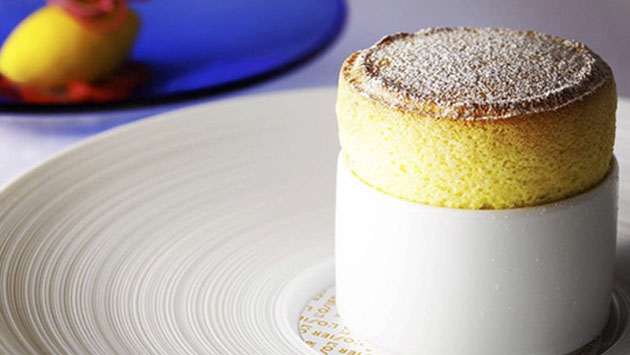
“Akaito is much more expensive than the imported saffron I have used in the past, but I support their commitment to a sustainable business model and have had the pleasure of working with Akaito. I have also enjoyed the time it takes for saffron’s natural colour to emerge and have had amazing fun discovering the aromas and subtle properties that unfold through cooking.”
“It creates a wonderful harmony in both savory and sweet dishes.”
An Akaito Artist since early 2022, Chef Chaignon has creatively used Akaito Saffron in his cuisine, which includes patisseries. One of the desserts served in the course, “Le Soufflé Safran de Saga ‘Akaito’ et Vanilla de Tahiti Crème Glaceé, Fraise Marinée”, featured Akaito saffron and Tahiti vanilla ice cream with a saffron-infused soufflé. The sunny yellow ice cream has a sweet floral taste, balanced by tart strawberries peeking underneath and, atop of it all, a raspberry tuile. The richness of the vanilla and delicate, characteristic saffron aftertaste pleasantly lingers in the mouth.
“The guests seemed surprised to see saffron used in the dessert, but the combinations of vanilla and saffron, the warm soufflé and ice cream is an excellent match.”
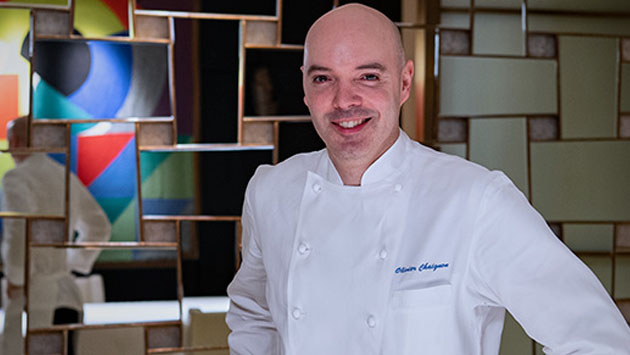
Chef Olivier Chaignon
M. Olivier Chaignon is Executive Chef of L’Osier in Ginza, Tokyo. After a lengthy career at renowned establishments including Taillevent and Pierre Gagnaire Paris, he came to Japan in 2005 as executive chef of Pierre Gagnaire Tokyo. He was appointed L’Osier’s Executive Chef in 2013. With L’Osier, he was awarded two stars in Le Guide Michelin Tokyo 2015-2018 and Gault et Millau Tokyo 2017 “Chef of the Year.” He was awarded three stars in Le Guide Michelin 2019 Tokyo and has held that status to date.

